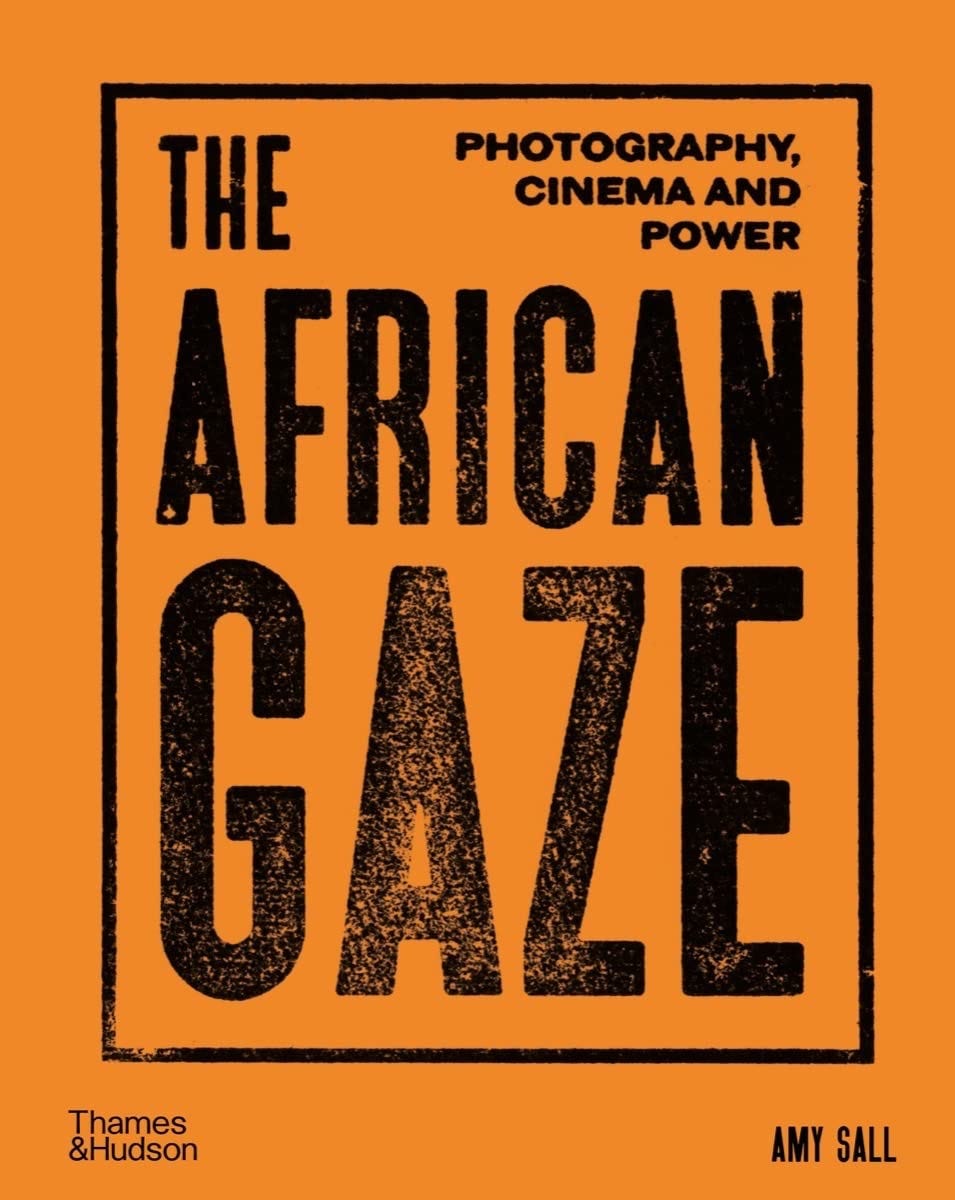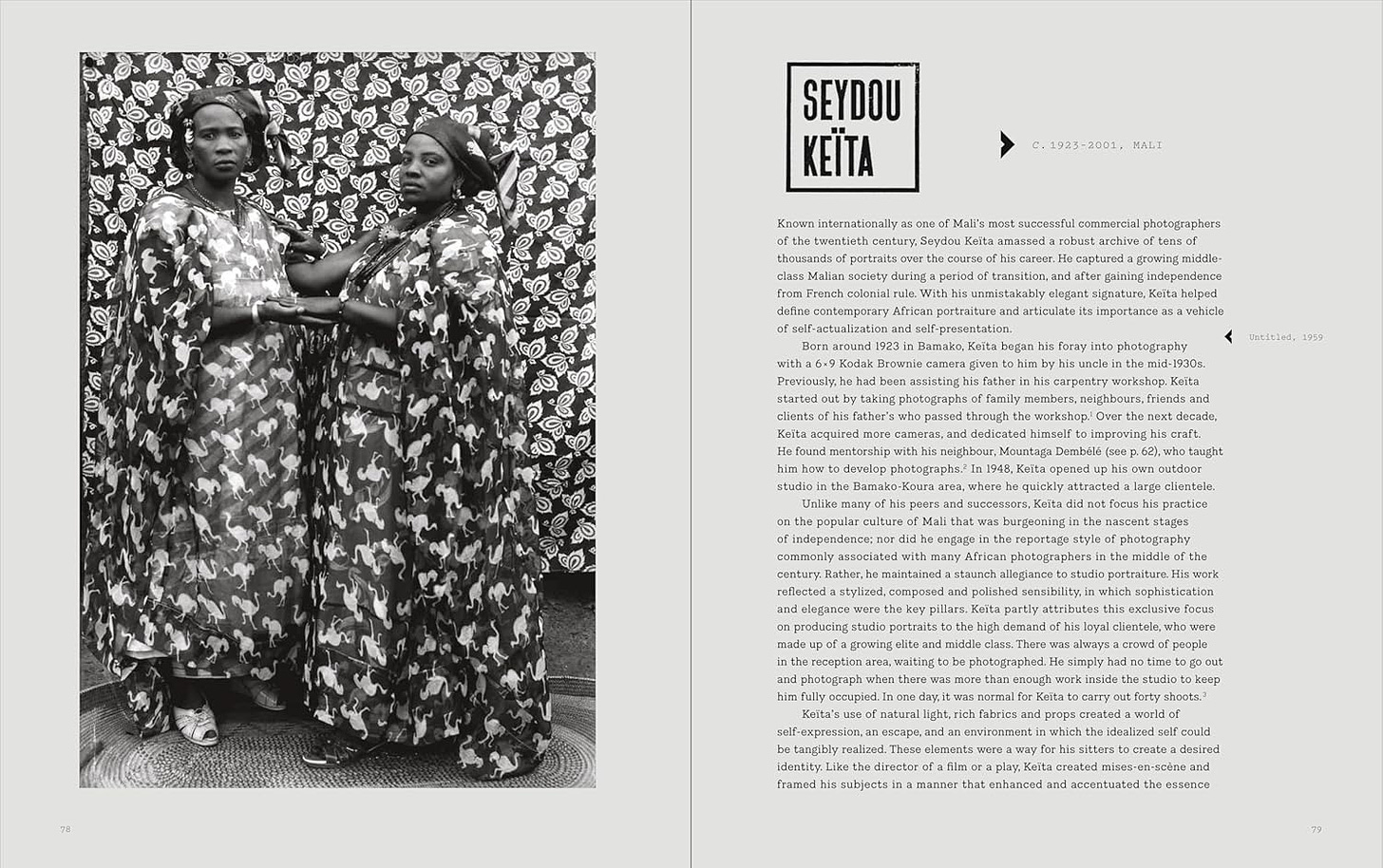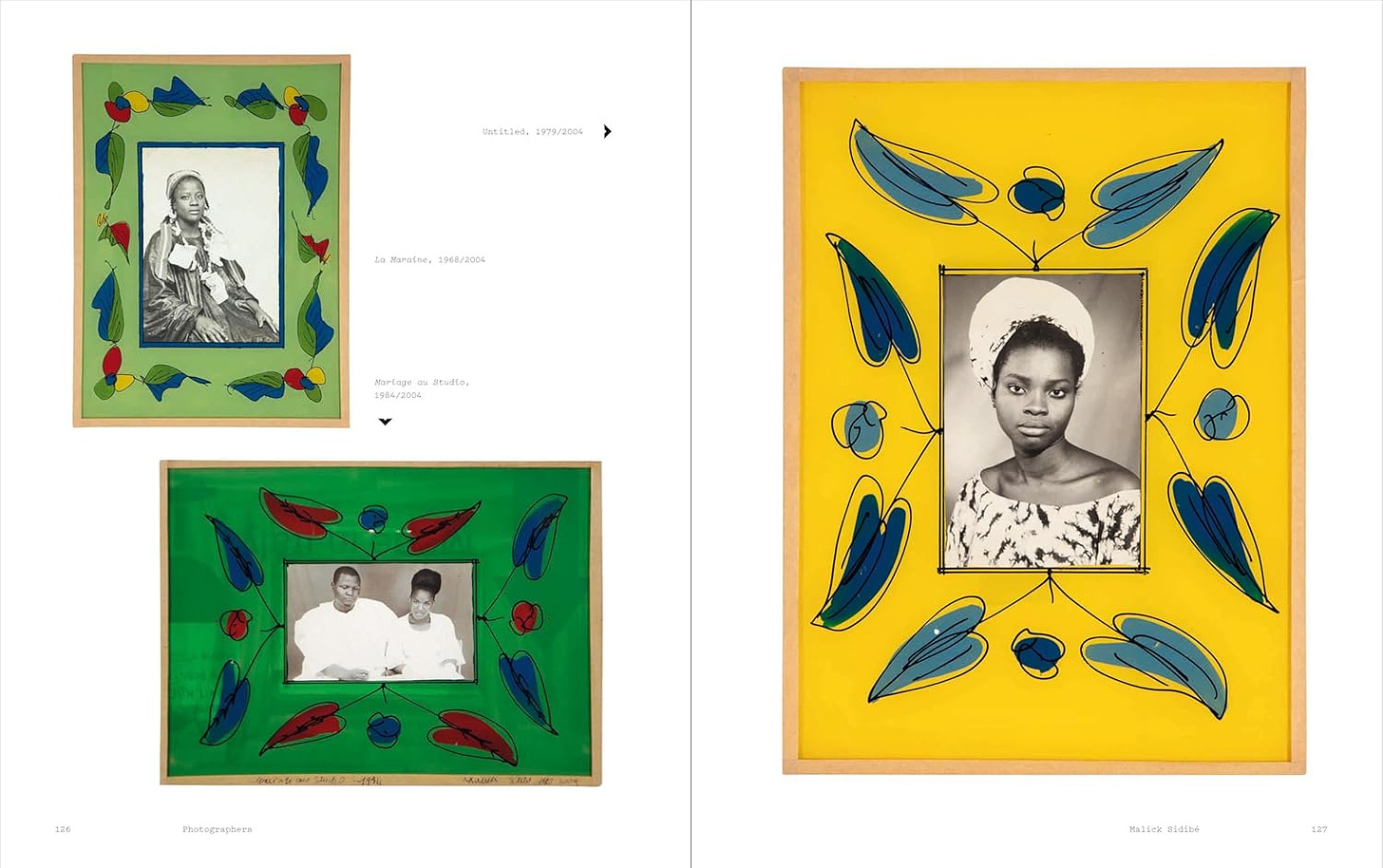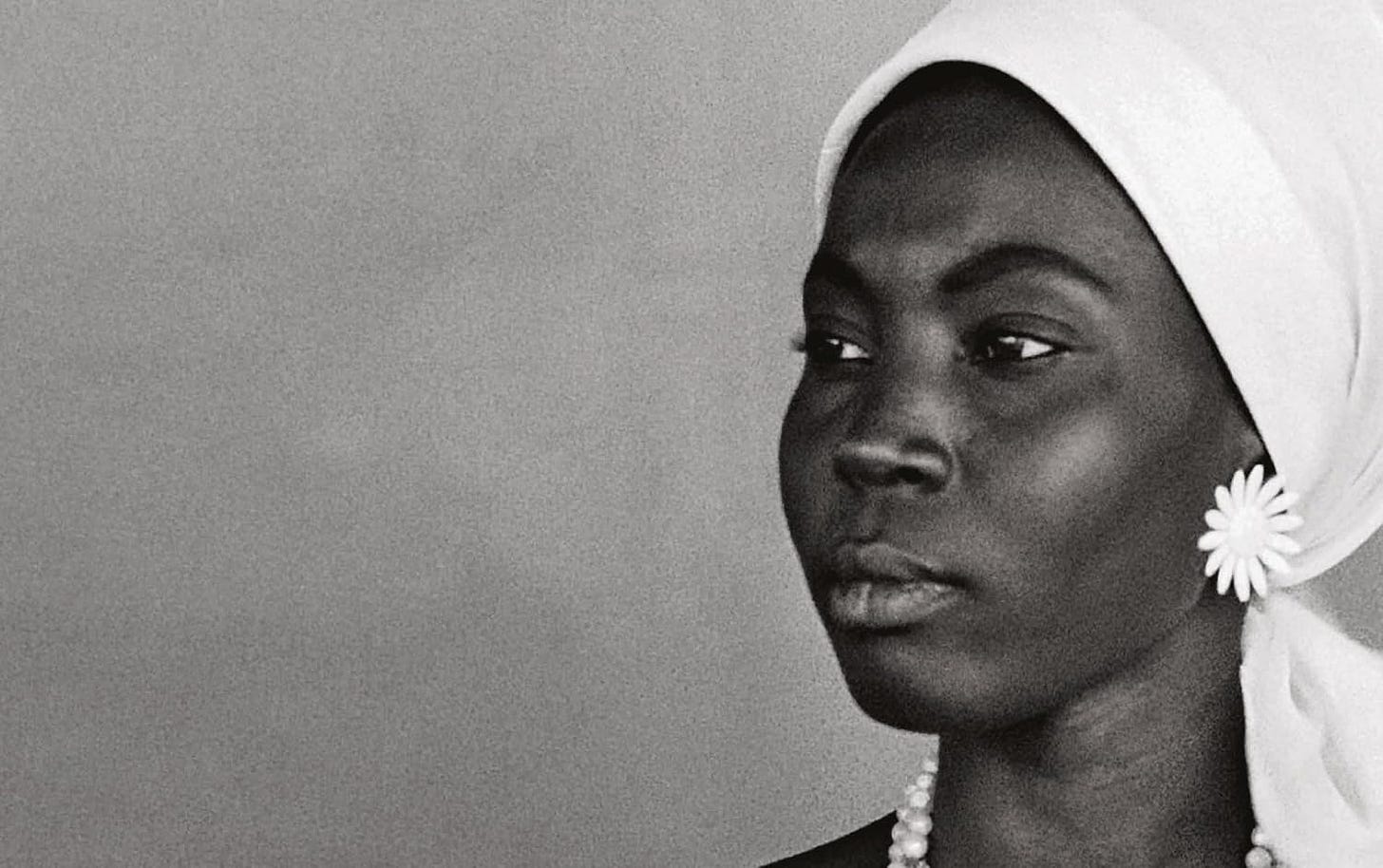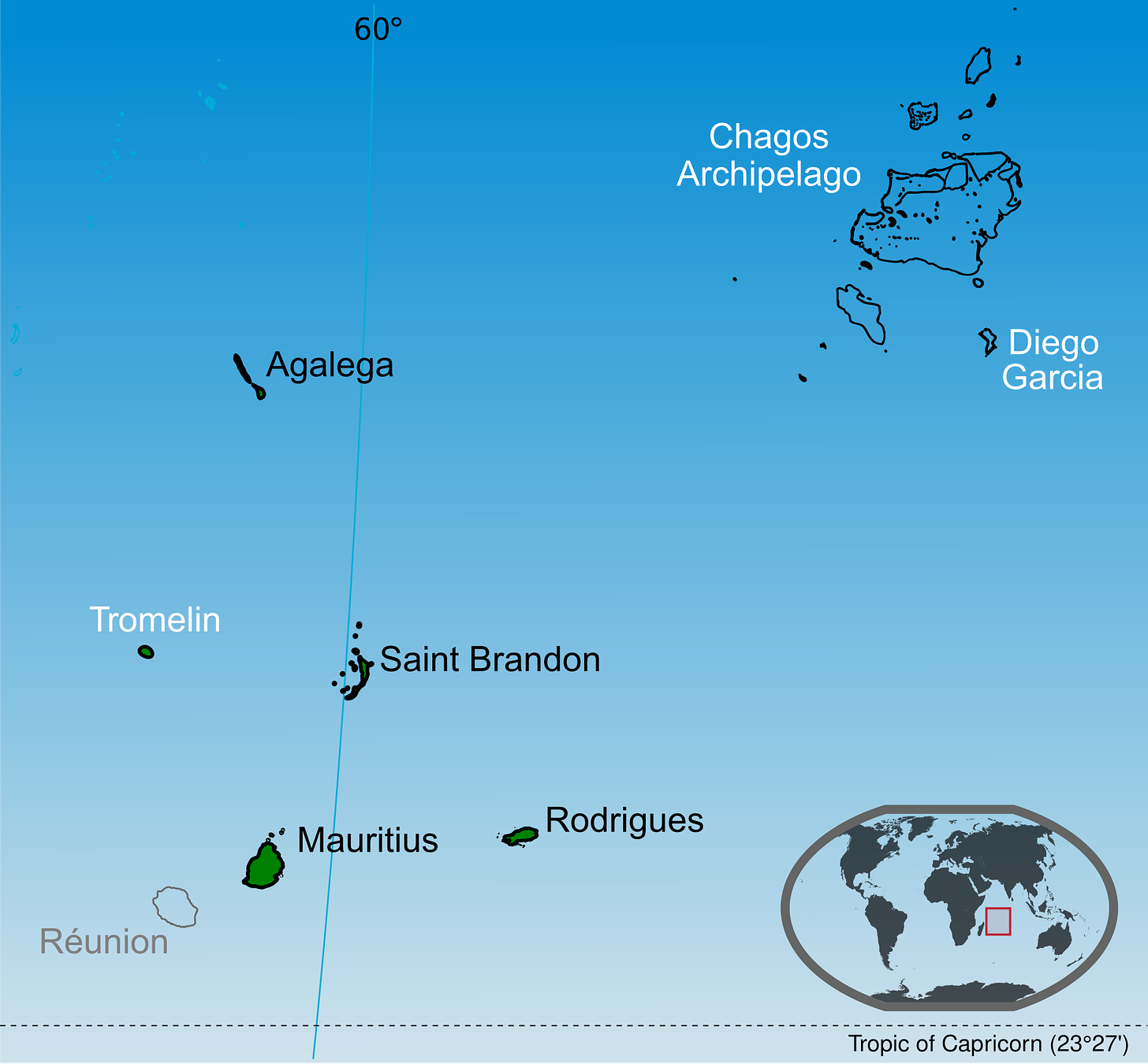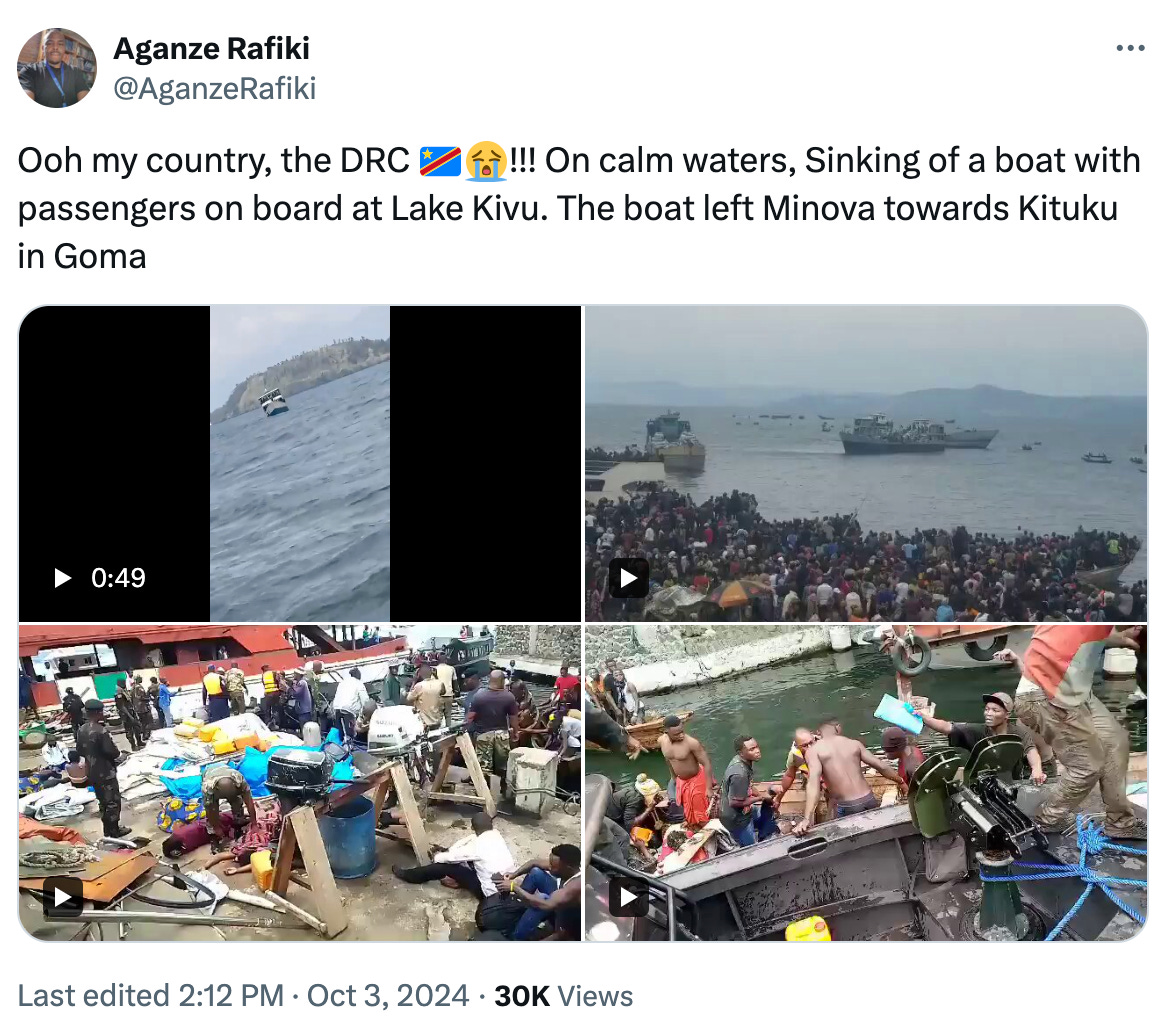🔅 📸 Liberation: The Colonial Lens Gets a Taste of Its Own Medicine
The UK's Long Overdue Breakup with Its Last African Colony
Image of the Day
Good Morning from Lake Abbe, Djibouti

Market Mondays
Year-to-Date Performance:
🟢 Johannesburg SE: 86,332.42 (+12.28%)
🟢 Nigerian SE: 97,520.54 (+30.42%)
🟢 Nairobi SE: 108.31 (+17.59%)
🟢 Ghana SE: 4,364.83 (+39.44%)
🟢 US S&P 500: 5,751.07 (+21.26%)
🟢 Shanghai Composite: 3,336.50 (+12.63%)
🇨🇩 China's Zijin Mining has big plans for the Kamoa-Kakula copper project in the DRC. They're aiming to crank out 1 million tons of the shiny metal per year, up from the current target of 600,000 tons. Power supplies, logistics costs, and transport bottlenecks could put a damper on those ambitious goals, but still if they pull it off, this project would be one of the world's top copper producers.
🇺🇬 Uganda has decided to get in on the mining action by forming a state-owned company to manage the government's stakes in mining operations. Under a new law, the gov can take a 15% free carry stake in all mining projects.
🇰🇪 Kenya's economy hit the brakes in Q2 2024, growing at just 4.6% – the slowest rate since late 2022. Meanwhile, the government has asked the IMF to conduct a "governance diagnostic" to investigate corruption and governance issues. But it's not all doom and gloom: a new digital nomad visa program aims to attract remote workers and boost tourism revenue
🇸🇳 Ratings agency Moody's on Friday downgraded Senegal's long-term ratings citing significantly weaker fiscal and debt position than expected. An audit revealed the 2023 budget deficit is over 10%, compared to the 5% reported by the previous administration.
🇿🇼 Zimbabwe's latest currency, the ZiG, has lost almost half its value since its April debut. Inflation is surging, there's a US dollar shortage, and the country is facing its worst drought in four decades. The central bank hiked interest rates by 35% in a desperate attempt to save the ZiG. Meanwhile, the country is starting to compensate white and Black farmers who lost land under former leader Robert Mugabe. They're kicking things off with a $20 million payment, but there's a much larger $3.5 billion scheme in the works (if they can find the money). In other news, the country has eased up on its local lithium processing requirements to help miners survive the recent price slump.
🇿🇦 South Africa's power utility, Eskom, is seeking a jaw-dropping 36% tariff increase for 2026. While this might make bondholders happy, consumers and businesses are likely to feel the pinch.
🇬🇭🇪🇹 Ivory Coast and Ghana, the world's top cocoa producers, are asking the EU to delay new rules aimed at preventing deforestation-linked imports. Ghana has also received "overwhelming" support from international bondholders to restructure $13 billion of overseas securities, a crucial step in its debt rework.
🇦🇴 Isabel dos Santos, Angola's first female billionaire, lost an appeal to unfreeze up to $778 million of her assets in a London court case. She's been facing corruption accusations for years but denies any wrongdoing.
🇳🇬 The World Bank has approved a hefty $1.57 billion financing package for Nigeria to support health, education, and power sectors. Meanwhile, the country is hoping to attract up to $10 billion in deep-water gas exploration through tax breaks and other measures.
🇪🇺 An audit found that the EU's flagship fund to tackle irregular migration from Africa has failed to achieve its goal, and Brussels has ignored human rights breach allegations in the process. The €5 billion fund, launched in 2015, aimed to address the "root causes" of migration, displacement, and instability. But almost a decade later, it's unclear if the projects have been successful.
🇺🇸 Finally, the US economy added 254,000 jobs in September, smashing expectations and prompting traders to increase bets that the Federal Reserve will lower interest rates at a slower pace after a jumbo cut last month.
There you have it - a whirlwind tour of Africa's financial news.
*Data accurate as of the close of markets across the continent
Spotlight Stories
The Liberated Lens: A Colonial Lens Gets a Taste of Its Own Medicine
For far too long, the photographic lens was used by the colonialists to promote racist tropes and dehumanize African people. It was a tool for documenting land transformation, migration, and settlement for colonial propaganda. Basically, it was the OG Instagram filter for making Africans look "primitive" and in need of "civilizing."
But despite the agenda to subjugate Africans, contact with the camera led the colonized to use it as a means to reclaim their autonomy and create their own aesthetic practice. It became the ultimate uno reverse card.
In the late 19th and 20th centuries, African visual artists began to reinvent and reinterpret ways of seeing and creating new forms of expression through the African gaze.
Studio portraiture became a thing: African photographers travelled across different regions, setting up temporary and then permanent studios. They developed a rich aesthetic, from family snapshots to self-portraits against luscious backdrops, capturing moments of leisure and joyous scenes.
Pioneers like Malick Sidibé and Samuel Fosso encapsulated the spirit of optimism in post-colonial Africa. Sidibé gave his sitters the space to express themselves however they wanted, away from the austere and strict rules of past portraiture. Fosso's theatrical and fashionable images had sitters radiating confidence like they were on a runway.
Film also provided the opportunity for world-building and liberation, becoming a force for change during the upheavals of the decolonization of Africa that spanned from the 1950s to 1975.
Amy Sall's debut book, "The African Gaze," aims to provide a balanced overview of the cultural, political, and aesthetic contributions made by pioneering figures across photography and cinema. It's not a complete survey, but rather a scratch on the surface of African visual culture to act as an introduction for audiences both familiar and new to African cinema and photography.
The book is split into two sections—25 photographers and 25 filmmakers—with each image-maker's story summarized in individual biographical entries, accompanied by stunning images of their works and archival visuals that serve as cultural markers. It's like a visual feast for the eyes.
Ultimately, "The African Gaze" is a collaborative book that is a testament to the power of recording visual histories. It features figures whose names will be remembered through current and future generations. And if you can, we think you should check it out.
Are You a High-Growth Business on the Continent?
The FT and Bloomberg are seeking entries for their annual list of Africa’s fastest growing startups. You can submit your company be following the links.
Chagos Islands: The UK's Long Overdue Breakup with Its Last African Colony
After years of legal battles, UN scoldings, and general international side-eye, the UK has finally agreed to hand over the Chagos Islands to Mauritius.
For those not familiar with this colonial tale of woe, here's the story:
Back in the 1960s and 70s, the UK decided to forcibly displace up to 2,000 Chagossians from their homes. Why? To make room for a joint UK-US military base on Diego Garcia, the largest island in the archipelago.
Fast forward to today, and the UK has finally agreed to return the islands to Mauritius, ending what has been described as a crime against humanity and one of the most shameful episodes of postwar colonialism.
But there's a catch (isn't there always?): Diego Garcia, one of the islands, and its military base will remain under UK control.
Chagossians have mixed feelings about the deal. Some are thrilled to have the right to return to their homeland after decades of exile. Others are miffed that they weren't consulted during the negotiations and that Diego Garcia remains off-limits.
But the saga isn't over yet. The agreement is subject to a treaty that the parties will seek to conclude as soon as possible. And Human Rights Watch is calling for meaningful consultations with the Chagossians and reparations to help them rebuild their future.
So, while the UK may be patting itself on the back for finally doing the right thing (sort of), the Chagossians' struggle for justice continues.
A Congolese Tragedy: At Least 78 Dead in Capsize
A vessel carrying way too many people capsized on Lake Kivu in eastern Congo on Thursday. The boat, which set off from the port of Minova, was en route to Goma when it sank just meters away from the port of Kituku.
According to local authorities, there were 278 people on board, and sadly, at least 78 people lost their lives in the accident, and many more remain unaccounted for. Governor Jean-Jacques Purusi of South Kivu province said the death toll could rise further. Witnesses reported seeing rescue services recover at least 50 bodies from the water.
Congolese officials have often warned against overloading boats, but in remote areas where most passengers come from, public transport is rare, so people take their chances on these overcrowded vessels.
This time, the boat sank, leaving survivors clinging to life and families mourning their loved ones.
Food for Thought
“To be praised is to be ruined.”
— Kenyan Proverb




